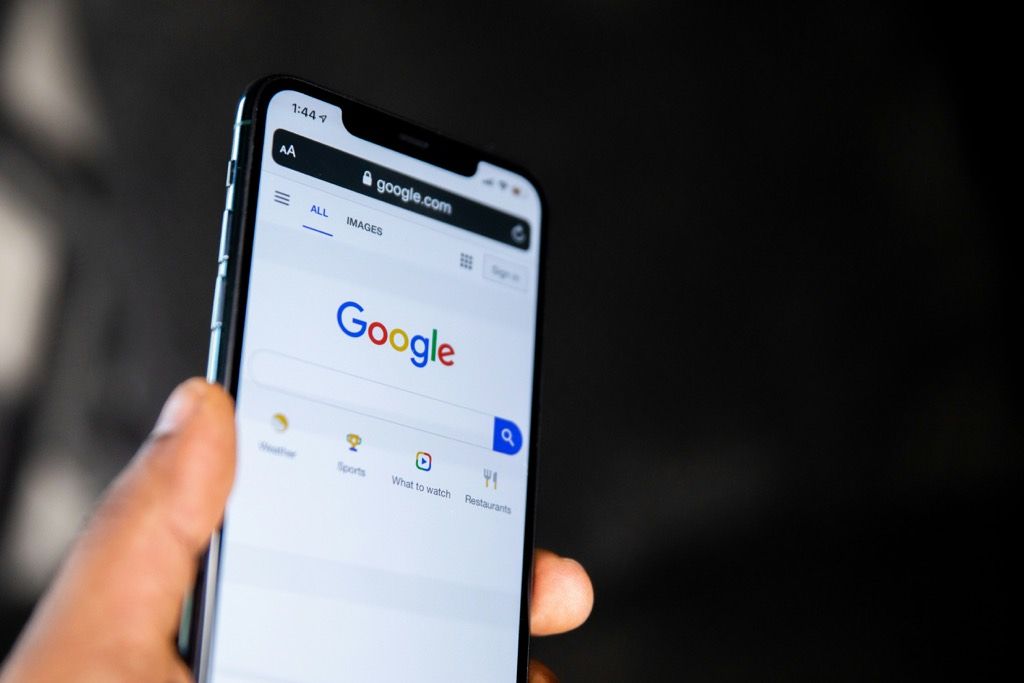How Will Google’s Mobile-First Index Affect Your Website Traffic?
Have you heard about Google’s new mobile-first index? If you haven’t yet, you probably will soon, and it has some businesses worried about how it will affect their website’s rankings. At the same time, it’s creating a lot of questions and considerations for marketers.
The mobile-first index is relatively new and the jury is still out on the answers to many of those questions, but here are some things to consider:
What is the Mobile-First Index?
On March 26, 2018, Google posted on its blog , “Today we’re announcing that after a year and a half of careful experimentation and testing, we’ve started migrating sites that follow the best practices for mobile-first indexing.”
It’s pretty common knowledge that more and more people are searching on mobile devices. According to Statista, as of February 2017, mobile devices accounted for 49.7 percent of web page views worldwide, and global mobile data traffic is projected to increase nearly sevenfold between 2016 and 2021. As of December, 2018, mobile vs. desktop device use worldwide is in a statistical dead heat at 48% each (rounded), with tablet devices taking up the remainder, according to StatCounter.
Prior to the mobile-first index, Google’s crawling, indexing and ranking systems exclusively used the desktop version of your website’s content. With the mobile-first index, Google will use the mobile version of your site for indexing and ranking. That’s really important news for web designers, marketers, and business owners.
Google is starting with websites it considers to be mobile-friendly. As far as Google is concerned, any website that renders on a mobile device is considered a mobile site - even if that website violates mobile-friendly best practices and looks awful on a mobile device.
The mobile-first index has many business owners and marketers scrambling to make sure that their websites can still be found online. The good news is that, for now:
1)
if your site is mobile responsive,
2) if it looks good on a desktop, tablet, or
smartphone
3) if it is NOT using an M-dot domain (more on that later)
... then you should not (for now) see any changes in your ranking due to the new mobile-first index (assuming you are not hiding information for mobile vs. desktop versions of your website, which affects the depth of information displayed, which in turn can impact SEO).
To find out if your website is considered mobile-friendly, take Google’s Mobile-Friendly Tes t. Things that could put your site in the “not-mobile-friendly” category are small text, buttons or links that appear too close to each other, and content that isn’t sized for mobile viewing.
Does Mobile-First Indexing Affect Rankings or Not?
Google claims that mobile-first indexing isn’t a ranking consideration. Instead, things like how you’ve written and coded your website compared to your competition is what affects your ranking. Things such as using the proper keywords in H1 tags, the quality of your backlinks (links from other websites), and image alt attributes are still ranking signals, and mobile friendliness (for the time being) is not.
Searches Done from a Mobile Device
However, as more and more people use their mobile devices to access the internet and as Google continues to focus on mobile searches, it’s just smart business to ensure that your website is user-friendly on mobile devices. It stands to reason that your “mobile quality” score will impact Google search rankings for searches performed from a mobile device.
Another initial concern was that the mobile-first index could cause your website to be delisted. According to Google, websites are still delisted for tactics such as hiding white text in a white background, generating spammy backlinks, and duplicating a website with a second domain name. Delisting has nothing to do with mobile-responsiveness.
One valid concern is M-dot websites. Google has been telling marketers to move away from m-dots and toward responsive websites and not to have both an m-dot and a responsive site. The mobile-first index makes that even more important. In this case, what is good for Google also happens to be good for your website. M-dots tend to have fewer and shorter pages, which means fewer opportunities to rank well for long-tail keyword phrases.
If your website is old and outdated - with or without mobile-first index – it will suffer. Stale content, pages that take too long to load, and navigation issues will cause your website to rank low and will alienate visitors. If it’s difficult to use on a mobile device, visitors will quickly move to a competitor’s website that is easy to use.
How to Get a Website Designed and Optimized for All Devices
Want to learn more about optimizing your website for both search engines AND viewers regardless of the type of device your potential customers are using? Give Power Marketing International a call today at 484-297-6395 for a free web design and marketin g initial consultation, or contact us online.
The information in this post is adapted from “ Should You Worry About Your SEO and Google’s Mobile-First Index? ”


















